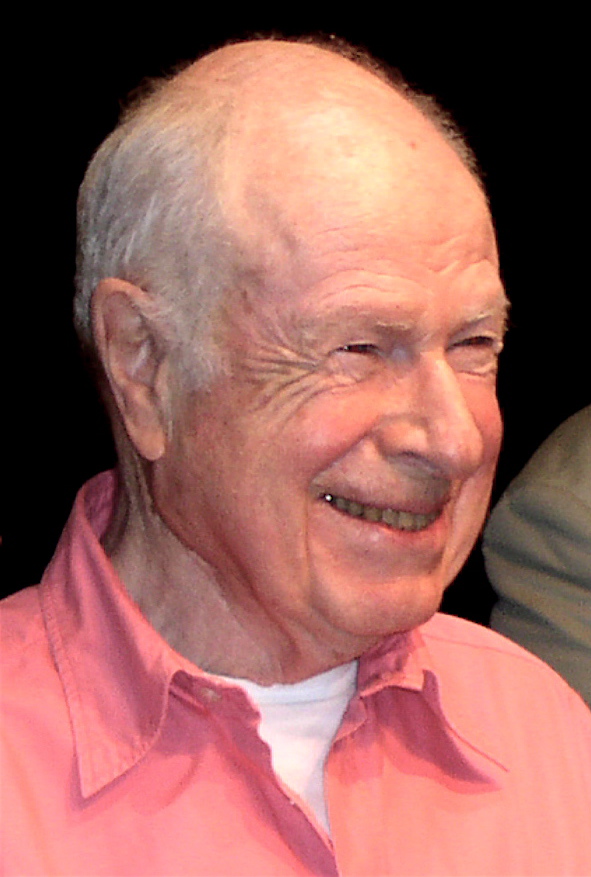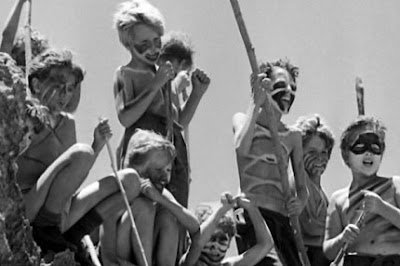- Also Known As:
- Unknown
- Version:
- Language:

- Length:
- 92 minutes: Uncut
- Review Format:
- DVD
- Year:
- 1963
- Country:

- Predominant Genre:
- Adventure
- Director:

- Outstanding Performances:
- None
- Premiss:
- Shipwrecked on an island, castaway boys reveal their savage natures when unfettered by rules.
- Themes:
- Alienation | Christianity | Coming-of-age | Curative | Destiny | Emotional repression | Genocide | Guilt | Identity | Individualism | Loneliness | Materialism | Narcissism | Political | Political Correctness | Sadomasochism | Schizophrenia | Solipsism | Stereotyping | White culture | White supremacy
- Similar to:
- Unknown
Caucasian Fear & Self-Loathing projected onto others
Summary: How
Caucasians see themselves - deep down.
Cynical exercise in imagining that children are responsible for the generally poor quality of the human race and that adults are never to blame. This lets a lot of bad adults – particularly parents - off the moral hook. The general tone is that of the rationalizations and denials of the Kübler-Ross model as applied to the acceptance that being White means being burdened with nostalgia, guilt & grief.
Isolation reveals the true natures of the characters as individuals, but does not demonstrate some of the constants of human existence as social animals. It is hard to imagine any human culture achieving any kind of civilization if human nature is as depicted here, since this movie vehemently rejects any belief in the inherent strength of humans as proto-adults who can self-organize rather than engage in lazy barbarity. Where are the counter-trends taking the group, as a whole, toward the beginnings of a stable society - of which there have been many examples throughout history? It is as though the culture from which the movie characters sprang provides them with no inner resources for surviving in extremis.
As a revelation of the inherent savagery of Whites, it is peerless, but it assumes all other cultures are the same - without evidence. Considering the non-cooperative and authoritarian nature of White culture, this is hardly a surprising viewpoint, since dog-eat-dog and every-man-for-himself tends to produce civilization in name only. But there is no corollary reflection on the White belief that Whites are archetypes for all human beings and, therefore, the standard against which all others are to be judged. What we have here, instead, is a movie that reveals the rabid self-control Whites require to enable them to appear superior to others; while never actually being so. Either human nature is base, or White nature is - this film tries to have it both ways by never asking this question - fundamental to its own premiss - and, thus, evading the very issues it raises.
Without natives to christianize, resources & peoples to exploit or a colonial empire to build, Whites descend into savagery - as they turn these impulses upon each other. Left to themselves in a paradisiacal country, far from civilization, the well-educated children openly-express their psychological primitivism - but without the necessary understanding that would enable them to live more simply than White culture ever encourages its adherents; suggesting that inside every White there is an anarchist without-a-self waiting to escape and unleash his fury upon the world.
At an allegorical level, the central theme is the conflicting Caucasian impulses toward living by rules - peacefully and in harmony with others — and toward the White will-to-power; that is, desire for popularity. Here, there is a tension between groupthink and individuality, the conflict Whites allege exists between the rational and the emotional & between morality and immorality. The dependency on others such views create is well-dramatized here, as none of the children are able to navigate the survival issues presented by being shipwrecked - as few Whites are able to breast the psychological issues presented to them by their declining position in the world. However, this does interestingly suggest that Whites live their lives as nothing more than an elaborate children’s game,
As with so many White Robinsonades, there is a strong sense of Whites not being able to stand on their own two feet when they have no-one to exploit to do this for them (as in the Admirable Crichton); hence, the characters are stereotypes, not real people - as if the film-makers do not really like children - or themselves.





No comments:
Post a Comment